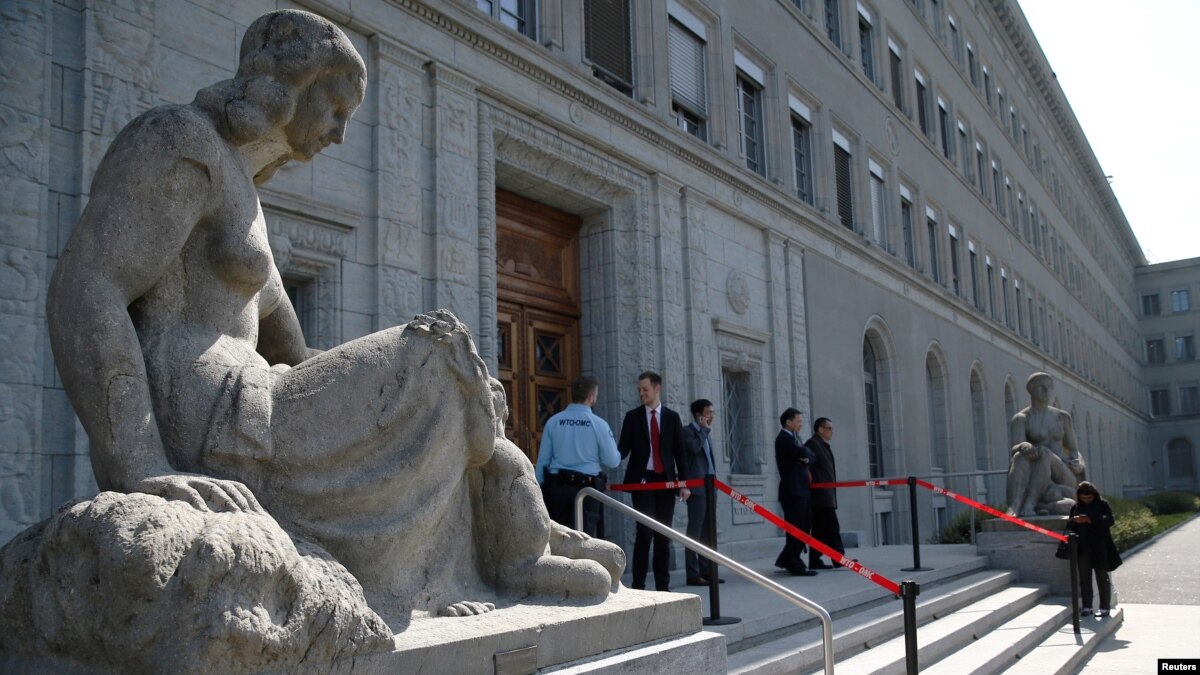
The United States told the World Trade Organization on Monday it would block the reappointment of one of the WTO's four remaining appeals judges next month, confirming trade experts' fears of a crisis in the system for
settling global rows.
U.S. President Donald Trump has railed against the WTO, calling it a catastrophe and a disaster. He has said the United States loses cases because other countries have most of the judges.
In fact, trade experts say, the United States has a similar, if not better, lose-win rate than other countries that have taken complaints to the WTO, and it has a rare privilege in that the judges on the WTO's Appellate Body have always included one American.
Trump faces a barrage of disputes at the WTO against his trade policies, including global tariffs on steel and a tariff war with China. Since he came to power, Washington has blocked all appointments to the appeals chamber as existing judges' terms end.
There are normally seven WTO appeals judges, but if Shree Baboo Chekitan Servansing, a trade judge from Mauritius, is not reappointed when his term expires on September 30, only three will remain — the minimum for the system to function.
It looks set to break down finally when two more judges' terms expire in December 2019, but it could seize up sooner if any judges need to recuse themselves from a case for legal reasons.
If the U.S. veto paralyses the dispute system, it would end 23 years of WTO enforcement, the keystone of international efforts to prevent trade protectionism, at a time of heightened global trade tensions.
At the WTO's monthly dispute settlement meeting, 67 member states have repeatedly petitioned Washington to drop its veto and keep the system working.
But U.S. Ambassador Dennis Shea told Monday's meeting that the Appellate Body had consistently over-stepped its authority by reviewing and reversing factual findings by trade arbitration panels, and by interpreting WTO members' domestic laws.
"The invention of an authority to review panel fact-finding ... has added complexity, duplication and delay to every WTO dispute," he told the meeting, according to a transcript of his prepared remarks.
Shea has previously promised to be "disruptive where necessary" to reform the WTO and has said the United States may choose not to accept appeals if they take longer than the allowed 90 days.
The United States has not followed through on the threat, but since legal rulings are routinely delayed, it effectively signaled that Washington reserved the right to ignore rulings that Washington does not like.
/cloudfront-us-east-1.images.arcpublishing.com/bostonglobe/VNG7YMZTRWJ5WBFTJ5NVETPCQI.jpg)
No comments:
Post a Comment